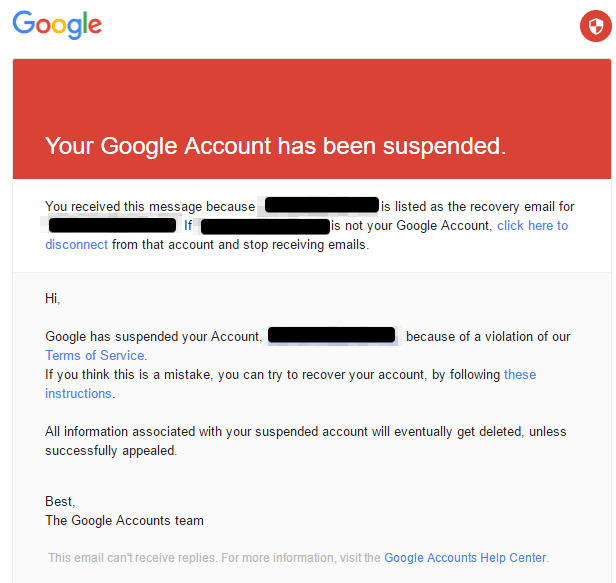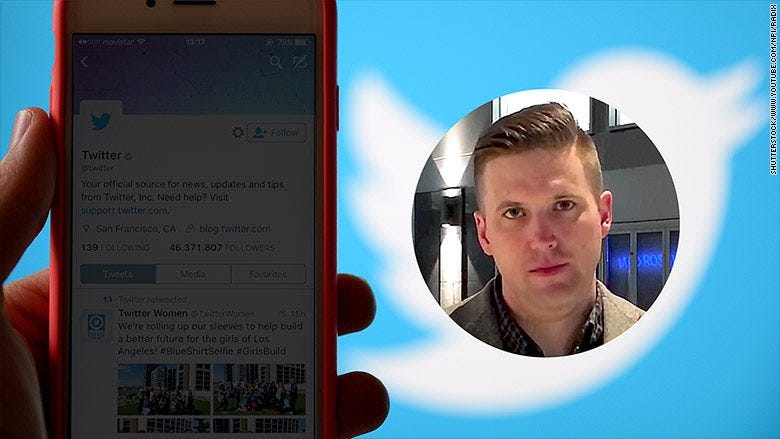Google’s digital death on Pixel and Facebook promises to do better, again
Click to read the full story: Google’s digital death on Pixel and Facebook promises to do better, again

We all know that Google is the big bad gorilla in the online search space, and they are making sure that people know they’ll pay the price if they violate their rules. By cutting offending users off from all Google services, they are showing what happens when you wrong them.
Some of Google’s unwitting users are learning a harsh lesson: If you violate the company’s policies, it may abruptly cut you off from your Gmail account, online photos and other vital digital services.
Several people who recently bought Pixel phones for a New Hampshire dealer are now suffering that punishment. Google detected their online purchases and judged they violated its rules against “commercial” resale of the Pixel. The consumers received $5 for each phone they bought for the reseller.

One Google user locked out from his account since Monday likened it to a “digital death sentence.”
In a Thursday statement, Google described the reselling arrangement as a “scheme,” but promised to restore the accounts of customers who it believes were unaware of its Pixel policies.
Facebook is offering new tools for charity fundraising, for marking yourself safe during a crisis and for helping others – or asking for help – after a natural disaster.
The social network made the announcements Thursday in New York at its Social Good Forum, a first-of-its-kind event it hopes to repeat in coming years. The company has dozens of engineers who work on its relatively new “social good” team creating tools for users to help their friends or the world around them.
“The philosophy of everything we do at Facebook is that our community can teach us what we need to do,” CEO Mark Zuckerberg said in a video played at the event. “And our job is to learn as quickly as we can and keep on getting better and better.”
USER POWER?
A tool called “safety check” lets Facebook users mark themselves safe during a crisis, whether that’s a natural disaster, bombing or something else. Once someone marks themselves safe, their friends are automatically notified that they have been accounted for.
At first, Facebook activated the tool in areas where disaster struck. Now, Facebook says it will stop its own activations, handing it off to users instead. How? When a lot of people are posting about an incident (stuff like “was that an earthquake?”), they might get a notification to let friends know they are OK, using safety check. If they do, they can invite other friends to do the same, and so on.
DISASTER AID
Beginning early next year, a tool called “community help” will let users offer and receive shelter, food or other types of help during crises. People have already been doing this on Facebook and Twitter, using hashtags such as #PorteOuverte (open door) after last year’s attacks in Paris that left 130 people dead.
But it was often difficult to pair up. The new feature aims to streamline this. People will be able to select categories to get or offer help with, such as food and water, transportation, baby items or shelter. Once they do, they can use Facebook Messenger to arrange the details.
CHARITY HELP
Facebook started letting charities raise money directly through its platform over the summer. At the time, users could choose from 100 U.S. nonprofits. Now, that number is 750,000 and growing. People can also add donation buttons to their Facebook Live videos to raise money – but only for actual charities, not a dream vacation.

Twitter has suspended the accounts of several prominent members of the so-called “alt-right” in an apparent crack down on accounts tied to hate speech or threats of violence.
Twitter declined to comment, but noted that its policies forbid violent threats, hate speech or harassment and promise to take action against violators. The company also announced Tuesday that it was expanding ways for users to report harassment and curb the amount of abuse they see, a reaction to a growing problem of abuse, bullying and harassment on the internet.
The alt-right, short for “alternative right,” is a loose group espousing a provocative and reactionary strain of conservatism. It’s often associated with far-right efforts to preserve “white identity,” oppose multiculturalism and defend “Western values.”
The movement drew national attention during the presidential campaign, especially after Stephen Bannon of the Breitbart website, considered by many to be the alt-right’s platform, joined Donald Trump’s campaign. Trump recently named Bannon as the White House chief strategist.
THE ALT-RIGHT FEELS WRONGED
Richard Spencer, head of the National Policy Institute, a white nationalist think tank, said in an interview that his personal Twitter account and accounts for the institute and his magazine were all suspended this week without notification.
Spencer, who is credited with popularizing the term “alt-right,” says he has never called for violence and hasn’t tweeted anything recently that might provoke a suspension. He called the suspensions a coordinated attack against users with certain viewpoints.
While he acknowledged that Twitter is a company and has a right to do as it pleases, he says it also needs to accept that it has evolved into something bigger and needs to act accordingly.
“This is 2016 and we live in a digital world,” he said. “Twitter is how the president releases press releases, and it’s also how teenage girls talk about Justin Bieber.
“Twitter is not just some website. It’s a public space, and we have to treat it that way.”
Pax Dickinson, who was ousted as chief technology officer of the website Business Insider in 2013 for sending offensive tweets, says he also wasn’t given a reason for his Twitter suspension. But he says it likely stemmed from a tweet he sent director Joss Whedon that included an anti-gay slur.
Dickinson says he’s appealed the suspension but has yet to hear back from Twitter. Spencer says he doesn’t plan on coming back to Twitter unless he gets an apology.
The Twitter accounts of alt-right personalities Ricky Vaughn and John Rivers also were suspended as of Wednesday. Paul Town was also banned, although he said in an email to media outlets that his Twitter feed is a “combination of satire and performance art” that has been misconstrued as alt-right.
BACKGROUND: ONLINE HARASSMENT
Online harassment has long been a problem for the internet. But because Twitter allows most conversations to play out in public and allows for relative anonymity, it has been especially visible there. And it’s especially challenging because Twitter harassment often resembles online mob action, with numerous pseudonymous accounts ganging up to tweet vile messages at particular individuals.
Actress Leslie Jones briefly quit Twitter in July after dealing with racial slurs, obscene photos and comments about her appearance. She called on the social networking service to do more to curb harassment on the platform.
Twitter ultimately banned several users, including conservative provocateur and Breitbart technology editor Milo Yiannopoulos.
The post Google’s digital death on Pixel and Facebook promises to do better, again appeared first on Movie TV Tech Geeks News By: Jeffrey Lang
